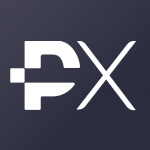Bitcoin and cryptocurrencies have only been around for just over a decade, making blockchain technology extremely new to the mainstream by most standards. Few had heard of the futuristic financial technology, and even fewer understood it.
Today things are different, and anyone can understand the benefits of digital coins like Bitcoin and Ethereum and how they can replace traditional payments systems without the need for an intermediary like VISA or Mastercard.
But a new category of crypto coins and tokens have emerged, built on Ethereum, and designed to replace traditional banks and the financial services they offer, such as loans, interest rates, and much more.
The trend has exploded to become the hottest and fastest growing category in the crypto market today, yet because it is still relatively unknown, a lot of questions remain. This guide is designed to answer all of the burning questions crypto investors have about the emerging DeFi sector and steer investors in the right direction in terms of which DeFi tokens to consider.
DeFi Definition: What Is Decentralized Finance?
DeFi stands for decentralized finance, a new finance sector aimed at allowing permissionless access to traditional banking products and services such as loans, as well as new ideas such as yield farming.
Most DeFi projects run as Ethereum-based smart contracts called Dapps. These DeFi apps unlock a world of unique service, all underpinned by crypto assets. By staking or providing liquidity, investors can earn interest or a yield on any idle assets. The combination of profits via APY combined with ordinary crypto market gains has made DeFi tokens especially appealing.
Importance of Decentralized Finance
The current market for DeFi and the explosion of trading volume at Uniswap have caused ETH gas fees to skyrocket in recent months. This, in turn, has increased the demand for Ethereum as well, which has reached all-time highs recently.
The rise of DeFi has put a spotlight on the need for Ethereum to solve its scalability issues, and the Serenity update, also called Ethereum 2.0, has begun rolling out as a fix.
Not all DeFi tokens are Ethereum based, but the bulk of them are built on the ERC-20 standard. Thanks to Ethereum, even Bitcoins can be “wrapped” as WBTC and used within DeFi applications.
DeFi coins have also given altcoin season a second chance, as money flowing into these tokens has turned into profits that are now being reallocated into other cryptocurrencies.
Components of DeFi
Not all cryptocurrencies are DeFi tokens, and not all DeFi projects are created equal. However, to be considered part of the decentralized finance sector, most value projects feature one or many of these critical components of DeFi.
- Open-Source: Open source is a term referring to computer code that is uploaded to the internet so that any developer can review the code thoroughly.
- Transparency: One part of ensuring transparency is by making the source code open source. Another is through distributed ledger technology, also called blockchain, which keeps an immutable record of all transactions and related data allowing anyone to view this information. Banks would never let regular people look over their books.
- Global Audience: DeFi coins allow access to a global audience, where regular banks only focus on local or regional audiences. This global userbase offers more liquidity overall and lets users in areas that don’t have traditional banking have access.
- Permissionless: There’s no limit to who can participate in DeFi networks or how much money they need to have. No one can tell you you can or cannot use these Dapps to access financial services.
- Interoperability: Because so many coins are all built on the ERC-20 standard on Ethereum, these tokens are highly interoperable. For example, anyone can swap one ERC-20 coin for another on Uniswap.
- Flexibility: This flexibility in who can access the services and what they offer is unrivaled in the world of finance. With banks, it has to be their way or no way at all, whereas, with DeFi, the only restriction is based on the code itself.
- DeFi In Lending: To take out a loan at a bank, you have to have a credit check run and to be approved by whatever the bank’s standards are. With DeFi, however, anyone can take out a flash loan against their crypto assets.
- Compound: When Compound launched its token in June 2020, it also started the trend of yield farming, allowing investors to earn interest on idle crypto assets.
DeFi Applications (Dapps)
Decentralized applications are code contained within smart contracts that power the face of DeFi. Here are the most common types of DeFi applications.
- Decentralized Exchanges (DEXs): Decentralized exchanges let users trade crypto assets and other tokens right from within their own Ethereum wallet, acting as a crypto deposits platform. By existing only on the blockchain, no coins are ever at risk of hackers trying to access a centralized platform’s server. Aside from this crucial difference of where the wallet lives, DEX are mostly the same as regular crypto exchanges and offers many of the same features, assets, and tools.
- Stablecoins: Stablecoins are crucial to many DeFi platforms. Stablecoins are among the most popular tokens to stake and earn interest on.
- Lending Platforms: Lending platforms such as AAVE let users access flash loans against their idle crypto assets. This allows users to avoid cashing out crypto assets when liquidity is needed, helping to keep the asset’s value high.
- “Wrapped” Bitcoins (WBTC): Bitcoin runs on its own blockchain separate from Ethereum and DeFi tokens. However, Bitcoins can be locked up in smart contracts and tokenized or “wrapped” in Ethereum, creating Wrapped Bitcoin. This allows bitcoin to work with DeFi applications.
- Prediction Markets: Prediction markets are exchange-traded markets specifically designed to speculate on the potential outcome of events future events such as an election. Market pricing can be used to help predict the potential outcome of whatever the event is.
DeFi Concepts
Crypto as its own niche of the finance world has brought to light many new terms and concepts such as mining, blockchain, and even decentralized finance itself. DeFi as a new category of crypto has its own share of new and emerging concepts that could someday become commonplace and already are becoming so. Here are some of the most common and popular DeFi concepts today.
- Yield Farming: Yield farming lets crypto enthusiasts and investors stake or lend crypto assets in order to generate higher returns increasingly depending on current market variables. Returns arrive in the form of crypto token rewards.
- Liquidity Mining: Liquidity mining is a type of yield farming where certain governance tokens can be used to stake to yield crypto rewards. As an incentive for providing liquidity within a smart contract, rewards are provided from a portion of transaction fees, for example.
- Money Legos: Each DeFi app, in essence, acts as a “Lego” brick, and thanks to the design of DeFi apps on Ethereum, they can be interlinked together similar to Legos to create new products and experiences.
- Composability: DeFi offers composability for developers to – brick by brick using money Legos – build more complex applications using other DeFi apps and tokens.
How To Make Money With DeFi And Proinvestmentfx?
Proinvestmentfx is an award-winning trading platform offering CFDs on crypto, forex, commodities, stock indices, and more. Over 50 different assets are available for trading, all under one roof. None of the assets are DeFi tokens, but that doesn’t mean users of the platform cannot profit from the DeFi trend.
In fact, Proinvestmentfx lets users access the most liquid and popular cryptocurrency coin associated with DeFi of all: Ethereum. Proinvestmentfx offers Ethereum trading on the ETHUSD and ETHBTC trading pairs.
Ethereum price has been skyrocketing ever since the DeFi trend began, and a leveraged long on the ETHUSD trading pair is among the best ways to make money on the current bull market uptrend.
Not only is the overall trend in crypto and DeFi positive, but Ethereum has now broken its former all time high just like Bitcoin did.
But what Bitcoin doesn’t have behind its momentum is an entire sector of DeFi coins that require BTC to function, helping to support rising prices by increasing fees and, therefore, demand for the asset.
DeFi users must buy ETH to send DeFi tokens and transact on DeFi apps. For example, trading coins on Uniswap requires ETH for fees. Then to send those coins to another wallet or to an exchange also requires ETH.
This has made Ethereum’s uptrend even more potent than Bitcoin and made it the best performing mainstream asset of the last year.
Conclusion: All About DeFi And Ethereum
DeFi is new, but clearly disruptive and ready to take the world of finance by storm. DeFi tokens have made for some of the best investments in crypto in terms of ROI, and open up an entire universe of financial services and products to all users globally. However, DeFi is not without at least some risks, and comes with a high cost in ETH.
Traders can instead consider trading Ethereum on Proinvestmentfx to profit from the overall DeFi trend, which taking a wait and see approach with riskier DeFi coins. The popularity of DeFi is also driving up Ethereum prices, making the ETHUSD and ETHBTC trading pairs a lucrative option for traders and investors wanting exposure to DeFi profits, without exposure to actual DeFi assets.
What is DeFi?
DeFi is a new category of crypto that enables permissionless access to banking products like loans and interest accounts.
Is DeFi a Coin?
No. There are many DeFi tokens, and the term refers to an entire category of coins, apps, and more.
What is Yield Farming?
Yield farming lets users stake crypto assets for an APY return.
What Are The Benefits of DeFi?
Accessibility, composability, transparency are just some of the many benefits of DeFi as an application.
What Are The Risks of DeFi?
There are risks associated with any type of investing, but because many DeFi applications are new, they run the risk of capital loss due to a bug or other issues.
What Does Ethereum Have To Do With DeFi?
Most DeFi coins and applications are built on Ethereum. The DeFi trend has greatly benefited Ethereum by increasing demand for ETH.
Is Bitcoin DeFi?
Bitcoin is not DeFi. However, Bitcoins can be wrapped in Ethereum to become Wrapped Bitcoin (WBTC), which can interact with DeFi apps.
Risk Disclaimer:
Investing in or trading gold or other metals can be risky and lead to a complete loss of capital. This guide should not be considered investment advice, and investing in gold CFDs is done at your own risk.
The information provided does not constitute, in any way, a solicitation or inducement to buy or sell cryptocurrencies, derivatives, foreign exchange products, CFDs, securities, and similar products. Comments and analysis reflect the views of different external and internal analysts at any given time and are subject to change at any time. Moreover, they can not constitute a commitment or guarantee on the part of Proinvestmentfx. The recipient acknowledges and agrees that by their very nature any investment in a financial instrument is of a random nature and therefore any such investment constitutes a risky investment for which the recipient is solely responsible. It is specified that the past performance of a financial product does not prejudge in any way their future performance. The foreign exchange market and derivatives such as CFDs (Contracts for Difference), Non-Deliverable Bitcoin Settled Products and Short-Term Bitcoin Settled Contracts involve a high degree of risk. They require a good level of financial knowledge and experience. Proinvestmentfx recommends the consultation of a financial professional who would have a perfect knowledge of the financial and patrimonial situation of the recipient of this message and would be able to verify that the financial products mentioned are adapted to the said situation and the financial objectives pursued.




